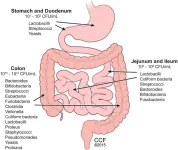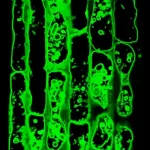(Press-News.org) Professor Woo Young Jang (Department of Orthopedic Surgery, Korea University Anam Hospital) recently won the best paper award at the 2024 fall academic conference of the Korean Musculoskeletal Tumor Society held in November 22th, 2024. This award recognizes the outstanding results and academic value of the research led by Professor Jang.
Professor Woo Young Jang, in collaboration with Professor Jun Seok Lee from the Department of Pharmacology and Dr. Jang Sun Hwang from the Department of Orthopedic Surgery at Korea University College of Medicine, conducted the research ‘Disaggregation-Activated pan-COX Imaging Agents for Human Soft tissue Sarcoma’. The study led to the development of a novel candidate marker capable of quantitatively assessing the severity and metastasis of sarcomas, along with a fluorescent molecular sensor to target it.
In particular, the study has been recognized as a groundbreaking breakthrough solution to challenges of diagnosing and monitoring the prognosis of sarcomas. This has drawn significant academic attention, with it being featured as the cover article of an international journal.
The new fluorescent probe developed by the research team presents an efficient approach to visualizing cancer stem cells in complex biological samples. Going beyond the limitations of existing cancer diagnostic methods, it offers a new direction for the development of imaging sensors targeting a wide range of biological targets.
Professor Woo Young Jang stated, “I am very pleased that this research is making a practical contribution to the development of diagnostic and prognostic monitoring techniques for sarcoma,” and added, “I look forward to seeing this technology applied to patient treatment in future clinical practice.”
END
Team of Prof. Woo Young Jang Department of Orthopedic Surgery, KU Anam Hospital wins the Best Paper Award from the Korean Musculoskeletal Tumor Society
2025-02-07
ELSE PRESS RELEASES FROM THIS DATE:
Terasaki Institute for Biomedical Innovation announces recipients of inaugural Keith Terasaki Mid-Career Innovation Award
2025-02-07
Los Angeles, CA – February 7, 2025 - The Terasaki Institute for Biomedical Engineering (TIBI) is pleased to announce their selection of Dr. Liangfang Zhang - Irwin Jacobs Chancellor’s Endowed Chair Professor at the University of California San Diego, and Dr. Aydogan Ozcan – Chancellor’s Professor, UCLA & Professor, Howard Hughes Medical Institute (HHMI), as the recipients of the inaugural Keith Terasaki Mid-Career Innovation Award. These awards will be presented at the 3rd Annual Terasaki Innovation Summit, to be held March ...
The impact of liver graft preservation method on longitudinal gut microbiome changes following liver transplant
2025-02-07
Background and Aims
End-stage liver disease is associated with disruptions in gut microbiota composition and function, which may facilitate gut-to-liver bacterial translocation, impacting liver graft integrity and clinical outcomes following liver transplantation. This study aimed to assess the impact of two liver graft preservation methods on fecal microbiota and changes in fecal and breath organic acids following liver transplantation.
Methods
This single-center, non-randomized prospective pilot study enrolled liver transplant patients whose grafts were preserved using either static cold storage or ex situ normothermic machine perfusion (NMP). Fresh stool ...
Cardiovascular health risks continue to grow within Black communities, action needed
2025-02-07
DALLAS, Feb. 7, 2025 — The American Heart Association’s 2025 Heart Disease and Stroke Statistical Update reports that while progress has been made in reducing cardiovascular and cerebral health disparities, Black communities in the United States still face disproportionately higher risk of heart disease, stroke and hypertension. These gaps subsequently contribute to equally disproportionate high death rates, underscoring the urgent need for lifesaving intervention. As part of its nationwide Heart Month and Black History Month activations, the ...
ALS survival may be cut short by living in disadvantaged communities
2025-02-07
Living in a disadvantaged community may decrease the length of time a person can survive with amyotrophic lateral sclerosis, or ALS, by over 30%, a Michigan Medicine-led study suggests.
ALS is a progressive, incurable condition that causes muscle wasting and loss of muscle control.
While most people survive with ALS around two to four years, some people can live significantly longer.
In the study of more than 1,000 patients with ALS seen between 2012 and mid-2024, people from the most disadvantaged neighborhoods had up to a 37% ...
No quantum exorcism for Maxwell's demon (but it doesn't need one)
2025-02-07
In a groundbreaking discovery, researchers from Nagoya University in Japan and the Slovak Academy of Sciences have unveiled new insights into the interplay between quantum theory and thermodynamics. The team demonstrated that while quantum theory does not inherently forbid violations of the second law of thermodynamics, quantum processes may be implemented without actually breaching the law. This discovery, published in npj Quantum Information, highlights a harmonious coexistence between the two fields, ...
Balancing the pressure: How plant cells protect their vacuoles
2025-02-07
Plants droop and shed their leaves when parched, but with a splash of water, their stems regain strength and their leaves unfurl. This dramatic transformation is a clear signal for us to reach for the watering can – and it demonstrates a delicate balance at the cellular level, which lies at the heart of plant’s rigidity.
The structural support of a plant depends on the unique balance between two elements: The strong, flexible cell wall provides structural support, while the vacuole, a large cellular compartment filled with water, acts like a water balloon, pressing against the cell wall. The delicate pressure balance between the inside and the ...
Electronic reporting of symptoms by cancer patients can improve quality of life and reduce emergency visits
2025-02-07
CHAPEL Hill, N.C.—People with metastatic cancer who regularly report their symptoms via a home-based electronic monitoring system experienced improved quality of life, clinical outcomes and well-being, as well as fewer emergency department visits than those who didn’t file reports. Both groups had similar overall survival rates, according to University of North Carolina Lineberger Comprehensive Cancer Center researchers and their colleagues.
The results from the national multicenter study appeared in Nature Medicine on Feb. 7.
“Doctors and nurses are often ...
DNA barcodes and citizen science images map spread of biocontrol agent for control of major invasive shrub
2025-02-07
New CABI-led research using publicly-shared DNA barcodes and citizen science images have provided new evidence on the establishment and spread of a biological control agent used for the control of the major invasive shrub Lantana camara.
Lantana camara was introduced as a garden and ornamental plant throughout the tropics and subtropics but is now pervasive throughout the Old World, invading woodlands, forestry, orchards, grasslands, and disturbed areas, where is displaces useful and indigenous plants.
Dr Matthew Cock, CABI Emeritus Fellow, and colleagues took DNA barcodes from the Barcode of Life Data System (BOLD) and citizen ...
Pregnancy complications linked to cardiovascular disease in the family
2025-02-07
Women who have experienced pregnancy complications have an increased risk of cardiovascular disease. Now, a new study from Karolinska Institutet published in the European Heart Journal shows that sisters of women with complicated pregnancies are also at higher risk, even if they had uncomplicated pregnancies. The findings suggest that genes and shared environmental factors may influence the association between pregnancy complications and cardiovascular disease risk.
It is well known that complications during pregnancy, such as high blood pressure and premature labour, increase the risk of cardiovascular disease later in life. However, it is unknown whether ...
Pancreatic cancer immune map provides clues for precision treatment targeting
2025-02-07
Pancreatic cancer patients may benefit from future precision treatments as a new study shows how some tumours may potentially be more susceptible to macrophage-based therapies.
The study which is published in Nature Communications was led by Associate Professor Shivan Sivakumar from the University of Birmingham and Associate Professor Rachael Bashford-Rogers at the University of Oxford and provides the most detailed immune map for pancreatic cancer. The findings suggest that some tumour cells ...






